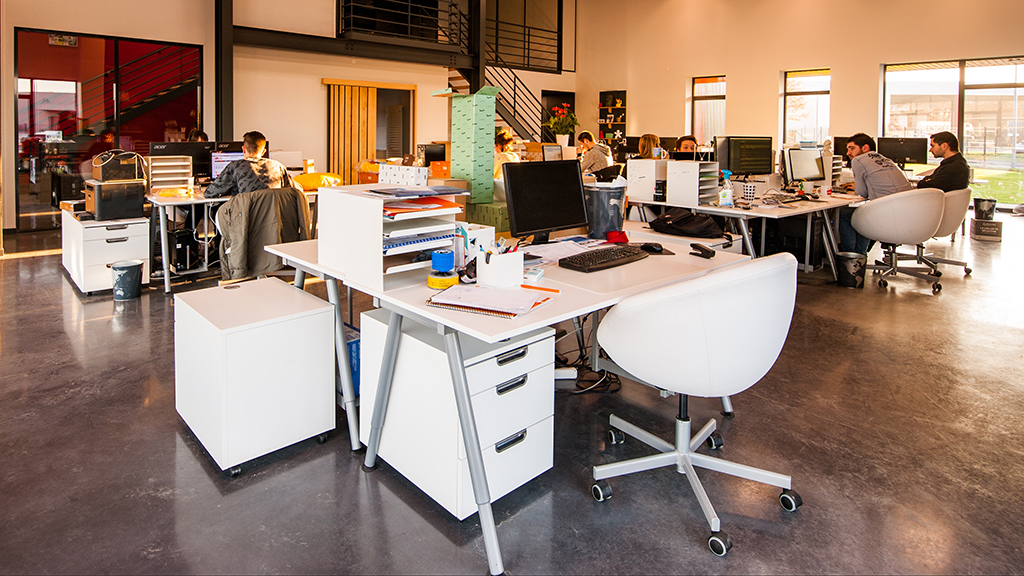Considering an internship? Cate shares what it’s really like and how it can help your career
It’s a competitive job market out there. To get real-world employment experience while completing your degree, consider doing an internship through a Work Integrated Learning (WIL) unit. This combines hands-on workplace experience with your discipline-specific skills, and earns you academic credit.
But what’s an internship really like? Do you just end up just making coffee and filing, or does it actually give you real insights into your chosen industry and develop your professional network?
We chatted to Cate King, who’s in her fifth year of a Bachelor of Laws/Commerce, about her internship at a legal service provider – which she did even in the midst of last year’s strict COVID-19 restrictions.
 Given the heavy uni workload, gaining practical experience along with a credit point was a great opportunity. I managed to get an internship for T2 2020 with Anika Legal, a legal service provider that operates solely online and was unaffected by lockdowns and restrictions. In the Deakin legal internship unit, there is a 100-hour requirement, which is a weekly commitment of about nine hours.
Given the heavy uni workload, gaining practical experience along with a credit point was a great opportunity. I managed to get an internship for T2 2020 with Anika Legal, a legal service provider that operates solely online and was unaffected by lockdowns and restrictions. In the Deakin legal internship unit, there is a 100-hour requirement, which is a weekly commitment of about nine hours.
It was easy to fit around study as there were no set hours or days. I had to give a case update by midday every weekday, but as long as I completed the work in a timely manner I could work when it suited. This makes an internship more feasible for those with children or jobs and students with lots of contact hours.
I had the preconceived idea that my internship wouldn’t be ‘real work’. I couldn’t have been more wrong. I was responsible for nine cases, which I ran from start to finish with the support of paralegal coordinators and the supervision of a lawyer. This autonomy meant I was doing real, meaningful work – being the point of contact, drafting all the documents and undertaking legal analysis (confirmed by a lawyer to provide legal advice).
There was no such thing as a typical day. The work done on a given day was whatever needed actioning. I would check my emails, make phone calls to clients or other third parties, draft and send documents to the lawyer for approval, fill out CAV or VCAT applications. Some days there was lots of work I could do; other days I would wait for clients to confirm advice or for a notice period to elapse.
I was given proper guidance and direction. I did a week of practical and legal training, and was provided with amazing resources such as user-friendly case manuals that guided me through different types of cases. I could ask a paralegal coordinator process and administrative questions via Slack and email legal questions to a supervising lawyer. All the interns had weekly Zoom reflection sessions with the Head of Legal Education to discuss their cases and any issues.
Everyone was very approachable and encouraged questions. I was empowered to make suggestions through a ‘design thinking’ workshop, where the interns would come up with a problem and devise a solution. This was just one of many ways that Anika Legal made me feel my input was valuable.
One of my favourite achievements was my first case, which took my whole internship to resolve. It was a public housing case under extremely sad circumstances and required me to exhaust all our processes, until finally my client received an outcome better than we could have asked for. I’m most proud of how grateful my client was, the rapport I built and the direct impact I made to improving their living conditions.
Following the end of my internship, I was offered a position as a paralegal coordinator. I supported the following intakes of interns and did various legal administrative tasks, such as setting up cases on our system and triaging clients. After six months I became Operations Coordinator (Legal Education), where I help design and deliver the internship unit offered by Anika Legal – the very unit I did myself last year!
What I found hardest was lacking confidence at the beginning of the internship. I wasn’t confident making client calls and would second-guess myself about a lot of things. At times you can feel like a child playing ‘grown-up’ when dealing with clients much older than you; however, over the internship I got more confident in myself, my abilities and my knowledge.
It did confirm my career path. My host practises residential tenancy law, an area that isn’t of particular interest to me, but it was working with clients and making a difference in their lives that I loved. This confirmed that I do want to be a solicitor and as long as I get to work closely with clients I will enjoy my work, regardless of the field of practice.
This experience has definitely advanced my job prospects. To be able to say that I have handled my own caseload, and all the associated technical and soft skills, really contributed to my employability in the legal profession.
To anyone considering an internship, immerse yourself in the organisation and your work. Don’t treat it as just a unit for university. You can make a real difference to people’s lives and gain so many opportunities if you apply yourself.
Is an internship right for you? Find out more
There’s a variety of ways to complete a WIL unit, including with external employers, on-campus internships, and volunteering and virtual Study Abroad opportunities.
The first thing you should do is talk to a Student Adviser to ensure you’re eligible to complete an internship for credit. Then check out your faculty WIL page for more info:
You should also visit the DeakinTALENT Jobs & Internships board and FreelancingHUB for more opportunities and to receive updates in your areas of interest.
